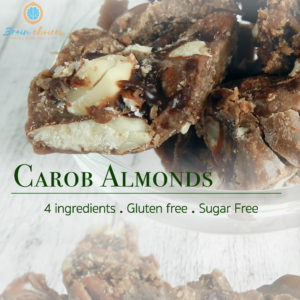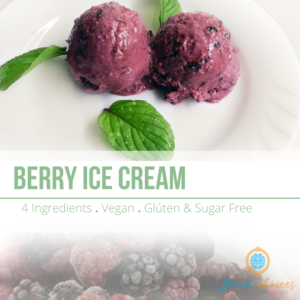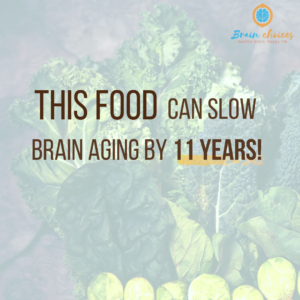
I have today a very simple, super delicious, and very brain-friendly recipe for you: almond-stuffed cacao dates 😊
Why do I say that this is a brain-friendly recipe?
First of all, because it doesn’t contain industrial sugar. Sugar has been shown to worsen cognitive function (1,2), increase the rates of depression (3,4), overall altered emotions (including stress, fear, anxiety, and depression) (5) and increase the risk of Alzheimer’s disease (6,7), among other detrimental effects.
This recipe contains dates instead, which are a whole food sweet. They are super nutritious and contain a lot of fiber, minerals (namely potassium, magnesium, manganese, and iron), B-vitamins, among others. They are also very high in antioxidants and have been shown to have anti-inflammatory, antioxidant, anti-cancer, and even anti-diabetic activity (8). They may also be very beneficial for our brain. Studies have shown that dates can lower inflammatory markers in the brain (which are associated with a high risk of dementia) and may decrease the risk of neurodegenerative diseases (9).
Cacao has long been recognized as a brain superfood mainly due to its high concentration of polyphenols (antioxidants). It also contains fiber, vitamins, and minerals, such as magnesium, calcium, potassium, iron, zinc, and copper. It also contains both serotonin (a neurotransmitter known for its anti-depressant effects) and tryptophan (an amino acid used to make serotonin). A recent study demonstrated that consumption of cocoa flavanols (antioxidants) can improve blood oxygenation in the frontal cortex (a brain region that plays an important role in planning, behavior regulation, and decision-making). This may contribute to improvements in cognitive function when cognitive demands are high (10).
Regular consumption of cacao has also been shown to improve stress-related metabolism by reducing the urinary excretion of cortisol (stress hormone) (11). Cacao also seems to relieve emotional stress and have positive effects on the mood, especially when consumed mindfully (12).
Cacao consumption could reduce the detrimental effects of sleep deprivation on cognitive performance (13). Also, cacao consumption seems to lower cognitive decline, such as in Alzheimer’s disease, while promoting healthy brain aging (14) and is associated with better performance in memory tests (15).
So lots of good reasons to eat cacao, don’t you think? 😊
A short note: cacao powder has had the fat removed as well as many antioxidants, so it is likely not as healthy as 100% cacao chocolate bars.
When eating dark chocolate, choose one with a very high cacao percentage, if possible 100%.



So let’s go to this yummy and healthy almond stuffed cacao dates recipe 😊
Not only you won’t feel guilty by eating this healthy treat, but actually, you should feel very good with yourself for eating something sooo tasty AND healthy 😊

Almond stuffed cacao dates
Ingredients
- 100 g 100% cacao chocolate
- 260 g dates ( I used 13 Medjool dates)
- 30 g raw almonds (I used 26 almonds, 2 for each date)
- Optional: salt
Instructions
- Cut the chocolate into smaller pieces.
- Add water to a small pot and boil it. Put inside the heated water a smaller stainless steel or glass bowl. Put the chocolate inside and stir.
- While the chocolate is melting, insert 2 almond inside each date.
- Optional: sprinkle a little salt on the dates.
- When the chocolate is melted, using a toothpick hold each almond stuffed date and dip each of them into the melted chocolate. Make sure they are completely covered with chocolate.
- Place a sheet of parchment paper on a plate and then the dates on it.
- Place the plate in the freezer for 15min or in the fridge for 30min and remove the toothpicks.
- Serve or store in the fridge.
- Enjoy! 😊
Hope you enjoyed this recipe! 😊 If so let me know in the comments below! And if you make this recipe tag me on Instagram or Facebook and show me your version of almond stuffed cacao dates 😊.

References
(1) https://www.sciencedirect.com/science/article/abs/pii/S0031938410004506
(2) https://physoc.onlinelibrary.wiley.com/doi/full/10.1113/jphysiol.2012.234328
(3) https://onlinelibrary.wiley.com/doi/abs/10.1002/da.10054
(4) https://www.ncbi.nlm.nih.gov/pmc/articles/PMC4515860/
(5) https://www.sciencedirect.com/science/article/pii/S0149763418308613
(6) https://www.eurekaselect.com/143312/article
(7) https://pubmed.ncbi.nlm.nih.gov/28274718/
(8) https://www.ncbi.nlm.nih.gov/pmc/articles/PMC3992385/
(9) https://www.ncbi.nlm.nih.gov/pmc/articles/PMC4994443/
(10) https://www.nature.com/articles/s41598-020-76160-9
(11) https://pubs.acs.org/doi/abs/10.1021/pr900607v
(12) https://linkinghub.elsevier.com/retrieve/pii/S0195-6663(16)30466-4
(14) https://content.iospress.com/articles/journal-of-alzheimers-disease/jad160142
(15) https://linkinghub.elsevier.com/retrieve/pii/S0195-6663(16)30045-9





Sounds yummy, think I might make some right now.
Thank you Anthony! 😊